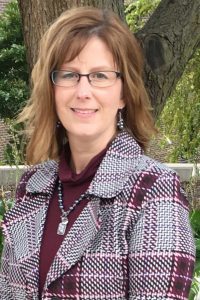 January is National Mentoring Month, launched in 2002 by the National Mentoring Partnership (MENTOR) and the Harvard T.H. Chan School of Public Health to raise awareness on the impact mentors can make on young people.
January is National Mentoring Month, launched in 2002 by the National Mentoring Partnership (MENTOR) and the Harvard T.H. Chan School of Public Health to raise awareness on the impact mentors can make on young people.
Its goals are to:
- raise awareness of mentoring in its various forms;
- recruit individuals to mentor, especially in programs that have waiting lists for young people; and
- promote the rapid growth of mentoring by recruiting organizations to engage their constituents in mentoring.
As I think about this week, especially in the context of the impact Dr. Martin Luther King, Jr. had on society, his famous quote comes to mind:, “Life’s most persistent and urgent question is, ‘What are you doing for others?’” I think giving time to our future generations is the least I can do to make a small impact. I have a busy schedule like many working parents, but I also believe it’s important to volunteer my time.
Mentoring doesn’t take a lot of time. It can be as little as an hour or two per month. As you look at the community you live or work in, where could you lend a hand? There are many organizations like Big Brothers Big Sisters which formally match adults (Bigs) with children (Littles), but you can also give of your time at a local school or university.
High school is a time of many challenges and hard choices, especially for students who don’t have reliable adults in their lives or for students who may be the first in their family to attend college. Throughout the year, that’s how I choose to give of my time. These students often have many questions about the college-going process and a little guidance provides significant impact to their journey. You may not know it, but even sharing your college-going journey or career path helps students learn about the process. Each person has a unique story—many different twists or turns that often young people don’t understand can happen or are “normal.” You have the power to help boost their confidence in this unsettling time.
I also am part of a program at my alma mater, Mount Mercy University. I have been paired with a first-generation college student in their Project Connect program, which aims to give first-generation, low-income, and minority-college students a network of support as they transition from high school to college. Along with a variety of supports from the University, I meet with the student each month so they have a community resource connection. This past finals week I sent a note of encouragement to my mentee, just to help send positive vibes her way (I remember back to my first finals week and how stressed I felt!). It was a little thing, but I know it meant a lot and gave her a needed boost! After the student completes the program their freshman year, they are asked to stay on their sophomore year to connect with new freshman in the program and serve as a mentor themselves.
Get involved—take that next step with your local school or organization. Or, to get started, check out this mentor connector resource. You will gain more than you give!
